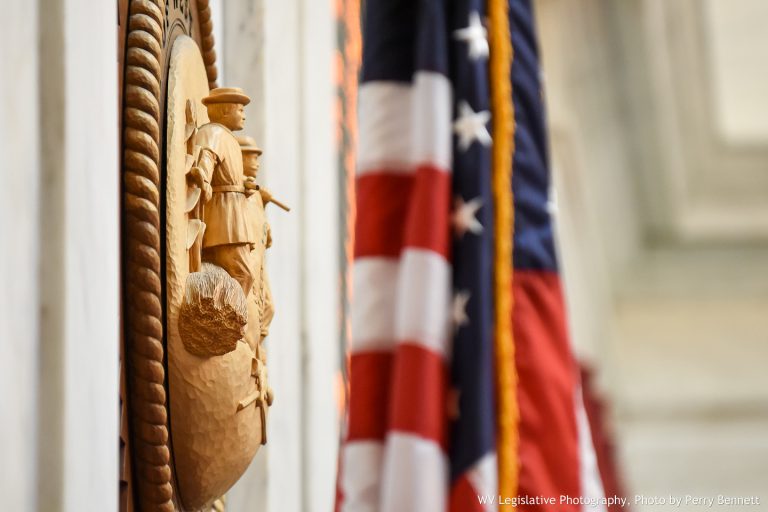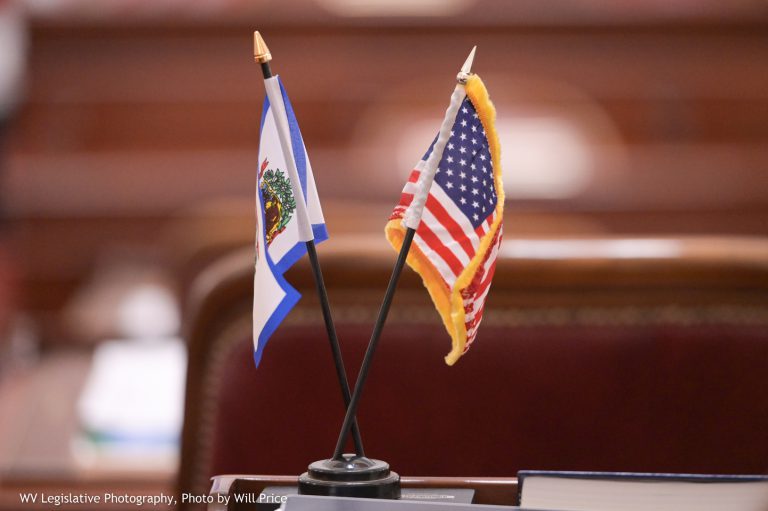As of 4 p.m., Wednesday, January 30, 2008, the 22nd day of the 2008 Regular Session, 505 bills have been introduced in the Senate. Of these bills, 11 bills have passed the Senate this week and will now go to the House for consideration. Some of the bills passed this week include:
Senate Bill 72 would expand the territory of the Route 2 and Interstate 68 Authority. This bill would extend the authority to include Cabell, Mason and Jackson counties, which would allow two voting members from each new county to be appointed to the authority.
Senate Bill 234 would create a Maternal Mortality Review Team. This team would be responsible for reviewing the deaths of women who die during pregnancy, at the time of birth or within one year of the child’s birth. This team would help develop plans that could prevent such deaths in the future. The team’s members would be appointed by the Governor and would serve five years.
Senate Bill 236 would eliminate obsolete election language relating to the role of circuit clerks in elections.
Senate Bill 238 would increase the monetary limit required to file a suit in circuit court actions from $300 to $1,000. This bill would also clarify original and general jurisdiction of circuit courts.
Senate Bill 257 would repeal outdated provisions of the West Virginia Code concerning the operation of the penitentiary by the Commissioner of Public Institutions. The state’s correctional system is now under the authority of the Commissioner of Division of Corrections. This bill would also repeal obsolete provisions relating to the hiring of inmates as contract laborers because inmates are no longer utilized in this way.
Senate Bill 263 would update various provisions of the code relating to the Division of Corrections. Some of these updated provisions would include specifying that all employees of the Division of Corrections are responsible for enforcing rules and laws necessary for the control and management of correctional units and clarifying that wardens and administrators of correctional facilities are subject to the direction of the commissioner.
Senate Bill 270 would eliminate provisions requiring circuit clerks to handle and disburse inmate moneys. All inmates are now housed in either a regional jail or correctional facility, not a county jail. Moneys belonging to inmates are now handled by the appropriate personnel, not by circuit clerks.
Senate Bill 337 would remove obsolete language concerning the Clerk of the Supreme Court of Appeals. This would bring the law in line with the court’s current staffing policies.
Senate Bill 459 would clarify the authority of the School Building Authority to promulgate rules and would authorize rules of the School Building Authority and the Higher Education Policy Commission.
A Sampling of Bills Introduced In the Senate
Senate Bill 327 would pay for veterans’ grave markers when the U.S. government denied the veteran’s application. These grave markers would be paid for by the “John F. ‘Jack’ Bennett Fund.”
Senate Bill 328 would prohibit the Division of Culture and History and the commissioner of Culture and History from selling food and drink in the West Virginia Science and Culture Center and merging the archives library with the lending library. In addition, this bill would give the Archives and History Commission oversight and administrative authority over the state historian and archivist.
Senate Bill 336 would require the pay rate of court witnesses to match the pay rate of jurors. Current pay ranging from $10 to $20 would be increased to a flat rate of $40 per day and payment for mileage would increase from 15 cents to 50.5 cents. Witnesses would include persons subpoenaed to appear before the Senate, House or any legislative committee.
Senate Bill 342 would set 2 a.m. as the time to stop selling alcohol in bars in the Berkeley, Morgan, Jefferson, Hancock, Brooke and Ohio counties. All four of the racetracks would be exempted from this requirement and from the existing limitations on alcohol serving hours.
Senate Bill 462 would raise the age of consent for refusal of mental health treatment from 12 to 18 years of age.
Senate Bill 465 would eliminate the business franchise tax effective January 1, 2013.
Senate Bill 469 would increase penalties for the neglect and abuse of incapacitated adults and the elderly. A person who neglects an incapacitated adult or elderly person would be fined between $500 and $5,000, imprisoned between one and five years or both. A person who maliciously and intentionally causes the death of an incapacitated adult or elderly person by withholding food, shelter, clothing or medical care would be guilty of murder in the first degree.
Senate Bill 471 would change the penalty for driving without automobile insurance from a license suspension to a fine of $100. This fine would only apply to a person whose insurance has been expired less than six months and who obtains proper insurance within five business days of a violation.
Senate Bill 475 would require the election of Supreme Court justices to be nonpartisan. The general election ballot would have clear and separate sections for listing of candidate names for nonpartisan and partisan offices.
Senate Bill 479 would create a database of DNA samples taken from arrested persons. Local, state and federal law enforcement agencies would be allowed to use this system to help identify persons in connection with criminal investigations, register sex offenders and establish a missing persons DNA identification system with the following categories: unidentified persons, unidentified human remains and samples from missing persons.
Senate Bill 480 would grant a classroom teacher who has been awarded a National Board for Professional Teaching Standards certificate an additional salary bonus provided the teacher is subsequently employed as a school principal, assistant school principal or in an instructional leadership position.
Senate Bill 483 would prohibit the operation of a video lottery game or terminal between 6 a.m. and 1 p.m. on Sundays. If found guilty, a person would be charged with a misdemeanor and fined at least $1,000.
Senate Bill 493 would grant powers to the Secretary of State to implement emergency procedures to ensure all eligible voters have the opportunity to cast a ballot in the case of a natural disaster, terrorist attack or other emergency.



